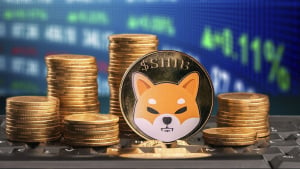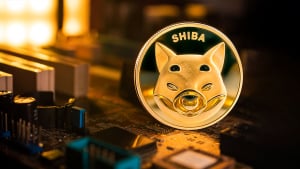ARTICLE AD BOX

Disclaimer: The opinions expressed by our writers are their own and do not represent the views of U.Today. The financial and market information provided on U.Today is intended for informational purposes only. U.Today is not liable for any financial losses incurred while trading cryptocurrencies. Conduct your own research by contacting financial experts before making any investment decisions. We believe that all content is accurate as of the date of publication, but certain offers mentioned may no longer be available.
After recently rising by more than 20% and gaining the interest of the cryptocurrency market, Tron has been on an amazing run. Tron is one of the best-performing digital assets. Its price performance is particularly strong, recalling memories of Solana's early days and the ferocious meme coin rallies on Ethereum and other networks.
Tron is now a strong competitor in the race to unseat Ethereum as the second-largest cryptocurrency by market capitalization, thanks to a notable uptick in profitability and user adoption on its network. Tron's low transaction fees are a major factor in its growth, drawing interest from both developers and users.
 TRON/USDT Chart by TradingView
TRON/USDT Chart by TradingViewWith the bonus of avoiding the infamously high gas fees that have beset Ethereum more recently, this cost efficiency is reminiscent of Ethereum's early days. Like Ethereum in its early years, Tron's ecosystem is also reaping the benefits of a boom in decentralized applications and DeFi platforms.
Nevertheless, Tron appears to be developing more quickly, supported by its capacity to manage a large number of transactions at low costs. Because of this, network profitability has skyrocketed and is now higher than Ethereum, the longtime leader in decentralized networks. Tron's growth has many in the cryptocurrency community wondering if it will ever overtake Ethereum in terms of market capitalization and user base.
Solana breaks through
Breaking through the $160 resistance level, which had been holding the cryptocurrency in check for some time, has been a major move for Solana. Significantly higher trading volume following this discovery indicates strong investor interest and the possibility of further price growth.
For Solana, the $160 mark represented a significant resistance level, and breaking through it indicates that the bulls are gathering steam. The rise in volume lends support to this action by showing that the rally is sustained by significant market activity, as opposed to a brief spike.
Many traders and investors are hoping that Solana will continue its upward trend, and such a volume-driven move frequently lays a strong foundation for it. But even with this positive development, it is important to understand that a long-term rally might not be able to be sustained by this breakthrough alone. Since April 2024, Solana has been trading in a sideways channel.
Although breaking above $160 is encouraging, it does not yet indicate a clear breakout of this channel. To really leave the sideways trading range and start a more persistent bullish trend, the cryptocurrency will need to keep up its upward momentum and overcome more resistance levels.
Shiba Inu's bearish state
The 50-day Exponential Moving Average has proven to be a formidable obstacle for Shiba Inu in its latest attempt to rally. This setback is a warning sign that could indicate a possible retreat in the near future. With the asset trading below its 50 100 and 200-day EMAs — all important indicators that traders use to assess the overall trend — overall market conditions for SHIB remain extremely bearish.
SHIB's inability to break above the 50 EMA, which frequently acts as a dynamic resistance level during downtrends, indicates that selling pressure is still in control. Instead of signaling the start of a longer-term rising trend, this rejection at the 50 EMA could mean that the recent bullish momentum was only a transient relief rally.
Given that SHIB is now below every major moving average (EMA), more losses may be imminent. If the bearish attitude persist, SHIB may find itself retreating to lower support levels and possibly hitting recent lows once again. The future is still not looking good for SHIB.
The difficulties SHIB has in reversing its downward trend are highlighted by its inability to break above the 50 EMA. A failure to breach this crucial resistance level could result in more selling pressure and additional price declines, so traders and investors should exercise caution.
 (1).png) 1 year ago
465861
1 year ago
465861










 English (US) ·
English (US) ·